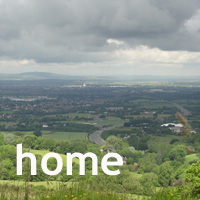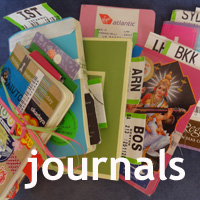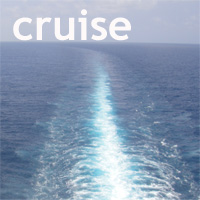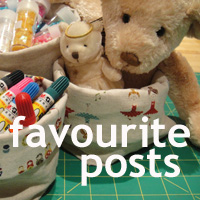The second Burmese word is…
 Tuesday, March 17, 2015 at 3:07PM
Tuesday, March 17, 2015 at 3:07PM
Kzeh-zu ba . Thank you.
Believe me, we felt thankful when we reached the other side of that road, having stood for several minutes in the middle of a six lane highway where the traffic might not have been moving as fast as it could have been, but the lack of strict driving standards meant we needed to be our guard. I stood “downroad” of Dan, our driver, who knew what he was doing and had surely done this a few times before.
Our next stop was a temple – the Sule pagoda, the first of a series of such buildings we’re scheduled to visit in the next few days. Here, the claim to fame was a few strands of Buddha’s hair, set within the gilded heart of the pagoda itself.
Sanda took us straight to it, through a labyrinth of triangular passageways which form the eight compass points around the central reliquary. There were plenty of other pilgrims including people who had travelled for a considerable time to be here, so I felt pretty awkward taking up their valuable space when for me, it was a simple sightseeing expedition. So, we hung back a little, did our best to explain that though we appreciated the significance of the relic, surely these people deserved to be there so much more than we did.
But it’s a fine line to tread. We didn’t want to be disrespectful to Sanda, or to let her think that we were dismissive of this potential highlight of the tour, so we simply went with the flow and made sure those who were clearly excited to reach their goal were able to do so without a couple of foreigners getting in their way.
So this is as close as we got. For sure, the Buddha’s hair is in there somewhere, but this isn’t a photo of it, I’m fairly certain.
Instead, we majored on the golden rooms, walking around each one in turn and feeling like we were walking in a straight line when we were actually walking around the eight compass points and making our way through identical spaces until we reached the place where we’d started.
We made our way through the glass mosaic entrance hall and out through the side door to a kind of garden, where there were ponds with turtles to feed.
People were throwing shredded lettuce in there faster than the turtles could eat it and surely, by the end of the day someone would need to sift some of it out again.
Though actually, the main goal for most of these visitors was the statue of the temple God at the end of the pathway, which seemed to be particularly important to the Thai visitors who were here in number.
Again, we hung back giving them a chance to make their offerings and giving me a chance to take one or two quiet photos of the goings on. Most of it appeared to be cellphone based activity!
In the queue, people were perusing their collections of selfies taken at the temple and taking more of themselves and their friends.
Some were about to make their offering but appeared to be interrupted.
Others were taking a break to catch up on Facebook, perhaps?
Whilst others were possibly neglecting their duties, distracted by the ever present temptation to play a game, listen to music or watch the latest Bruce Lee video (actually, that was the elevator operator in the last temple we visited this afternoon!)
In the meantime, the crowds had cleared and we were able to get a clear view of the statue they’d come to see. We could also see how they folded a note (dollar bill?) into a conical shape around what looked like a eucalyptus leaf and then slotted it inside the notes which were already there between the God’s fingers. Having made their prayer, they retrieved the now blessed leaf and took a few more photographs.
Oh, and discarded any surplus material into the bin alongside.
In the same space on the opposite side of the pagoda was another, smaller structure with smaller temples around it focussed on the days of the week. Today being Tuesday, those born on a Tuesday would attend and make an offering at their particular little temple.
I was born on a Sunday, so I took an interest in that particular corner of the yard.
We took a quick look inside the hall opposite where another statue of buddha sat overlooking a large carpeted area, his head surrounded by a halo of multicoloured neon lights, but by now, we were ready to move on. It was getting pretty hot by now so we stepped very carefully, barefoot, across the tiled spaces and out to the car where we’d left our shoes.
Our next stop involved a drive across the city and several traffic jams too. One of the jams was around a high school where students had been sitting one of their final exams this morning. Supportive parents were waiting outside for their offspring who milled around in white and green school uniform, looking relieved.
The traffic jams were endless. Dan must have used every gram of patience as we sat for ages waiting for something to move. Eventually, we reached the Botataung Pagoda, our next stop.
Not really a pagoda at all but an enormous shed set in a monastery complex, build to house the huge reclining buddha you see above. The Buddha is made of bricks and plaster and has glass eyes. He’s also got birds nesting in his nostrils!
Beautifully made and rather elegant in form, the figure is too big to do justice in a photograph really. He’s wearing eyeshadow and has painted nails and lipstick too, not to mention the most beautifully shaped and decorated robes.
The folds of the “fabric” are so well shaped that it’s difficult to believe it’s only plaster underneath that gold paint.
The border of the robe is created from a glass mosaic – lovely.
But what we’ve never seen before are the soles of his feet. Never have we realised that he has such a significant footprint, that the symbols are all set out in a particular format and can be interpreted too.
Anyway, having seen the reclining Buddha from head to toe, it was time to move on.
Our next stop was the market – formerly known as Scotts Market, it’s now called Bogyoke Market and finding ourselves in yet another jam, Dan let us out in the middle of the road and we walked the last stretch.
It was a bright and airy space, without the aroma of fresh meat and fish to give it that unmentionable atmosphere. Here was jade a-plenty, gold, lacquer ware and…
underwear!
No, come on…we carried straight on past all of that and cut to the chase that was the fabric! first, Sanda took us to see fabric woven by the Chin people in the far west of the country. They weave using cotton, so the resultant fabric is quite heavy and warm. It’s also patterned on one side but plain on the other. Clever, eh?
We have some cushions in our room made from such fabric. It’s attractive and distinctive but not really what I was after.
What was I looking for? Well, not any of this synthetic yardage in bright colours, really. But it’s hard not to look, especially when there is so much of it!
Most is cut into longyi lengths, pieces of around 2 metres which can be made into the wrap around skirts worn by the women here (and also, in different, more masculine patterns, by the men)
As you can imagine, the colour and texture drew me in and I could have happily spent the rest of the day there.
But heroes get achy backs from time to time and of course, we had other things to do, so however tempting the pile of noodle salad looked, we weren’t really in for a rest at this time.
We were focusing on fabric, these patterns being of Burmese origin and typical of the style here – but sadly, not really easily translatable to something I’d wear at home.
As small distraction came in the form of some small bags which looked remarkably similar to some I have at home, bought from the Lisu women we stayed with years ago in Northern Thailand. Sure enough, they’re made by members of the same tribe here in Myanmar, as were the cross stitches bags associated with the Akha women.
All very tempting but I was after a longyi and there were still a few (hundred) fabric stalls we hadn’t looked at.
Hang on a minute though, there’s a little chanting, some gentle pushing (or was it squeezing past) and a group of Buddhist nuns went on their merry way, collecting alms from various stalls. Never a dull moment here!
My eye fell on what looked suspiciously like a pile of Kaffe Fassett style cotton. Maybe this was what I was after for my longyi?
Better still, there were some rather lovely ikat woven pieces I preferred and in no time at all, I had satisfied my shopping needs. One longyi purchased…US$4.
Good grief. I should have bought two. Three even!
Mission accomplished, we made our way back to the car, passing these puppets along the way. I’ve included them here because they relate pretty well to something we saw in the museum a little later on, but as no cameras were allowed inside, I thought I’d include them here.
I think I’m going to need a third post to finish of the day! See you in the next one.
 Myanmar in
Myanmar in  fun,
fun,  textiles,
textiles,  travelling
travelling 







Reader Comments